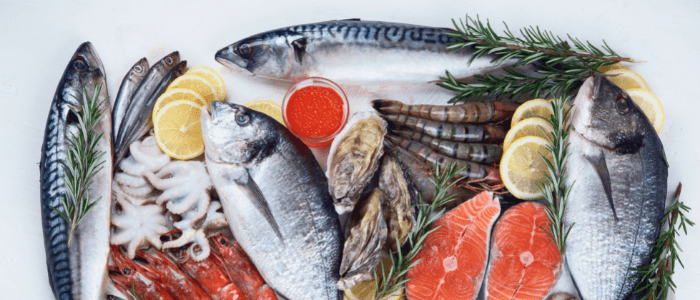The key to a healthy diet is being active and eating the right amount of calories. That way you can balance the energy you consume with the energy you use. If you eat or drink more than your body needs, you will gain weight because the energy you don't use is stored as fat. Conversely, if you eat and drink too little, you will lose weight. That's why in this article, we atmybiopedia.com will share with you more about how to eat healthy to look and feel good.
To answer the question "How to eat healthy", we first need to learn how to balance our diet so that the body gets all the nutrients it needs. It is recommended that men take in about 2500 calories per day, while for women this amount equates to 2000 calories per day. But this is, of course, very relative. Read our tips to help you start eating healthier.

#1 Take high-fibre carbohydrates
Starchy carbs should make up just over a third of the food you eat. These include potatoes, bread, rice, pasta and cereals.

Keep an eye on the fat you add when cooking or serving these types of foods because it increases the calorie content - for example, oil on chips, butter on bread and creamy sauces on pasta.

#2 How to eat healthy: Focus on fruits and vegetables
It is recommended to eat at least 5 servings of different fruits and vegetables every day. They can be fresh, frozen, dried, or in juice form. A 150 ml glass of fruit or vegetable juice, or a smoothie also counts as 1 serving, but limit the amount you have to no more than 1 glass per day as these drinks are sugary and can damage your teeth.

#3 Eat more fish
Fish is a good source of protein and contains many vitamins and minerals. That's why it's a good idea to include it in your healthy diet. Aim to eat at least 2 servings of fish a week, including at least 1 serving of oily fish. Oily fish is high in omega-3 fats, which can help prevent heart disease.

#4 Reduce saturated fat and sugar
You need some fat in your diet, but it's important to pay attention to the amount and type of fat you're consuming. There are 2 main types of fat: saturated and unsaturated. Intake of fats from the first group can increase the amount of cholesterol in your blood, which increases your risk of developing heart disease.
Note that children under the age of 11 should have less saturated fat than adults, but a low-fat diet is not suitable for children under 5.
Saturated fat is found in many foods such as: fatty cuts of meat, sausages, cakes, biscuits, lard, pies etc. Try to reduce your saturated fat intake and instead choose foods that contain unsaturated fats, such as vegetable oils, oily fish and avocados. For a healthier choice, use a small amount of vegetable or olive oil or a reduced-fat oil instead of butter, lard or ghee.

#5 How to eat healthy: reduce salt
Eating too much salt can raise your blood pressure. People with high blood pressure are more likely to develop heart disease or have a stroke.
Even if you don't add salt to your food, you may still be eating too much. About three-quarters of the salt you eat is already in food when you buy it, such as cereal, soups, breads and sauces. Use food labels to help you reduce the amount of salt. More than 1.5 g of salt per 100g means the food is high in salt.
Adults and children 11 and older should eat no more than 6 g. of salt (about a teaspoon) a day. Younger children should have even less.
Don't skip breakfast Some people skip breakfast because they think it will help them lose weight. But a healthy breakfast high in fiber and low in fat, sugar, and salt can be part of a balanced diet and can help you get the nutrients you need for good health. A lower-sugar whole-grain cereal with semi-skimmed milk and fruit cut on top is a delicious and healthier breakfast.
Healthy foods for weight loss
Healthy foods and healthy foods - foods for healthy eating





Comments